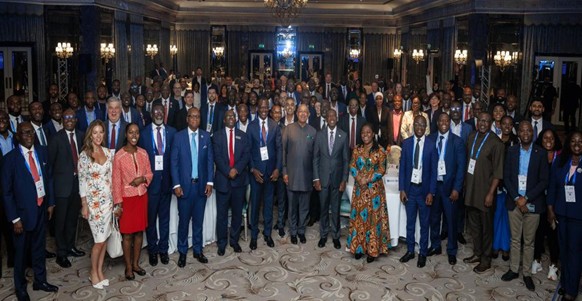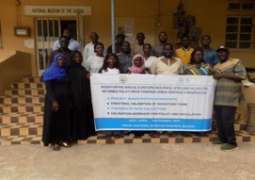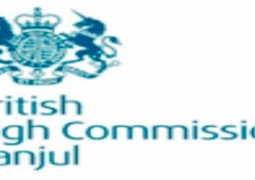
The event, held from 6–8 August 2025, brought together expert policymakers, financiers, legal specialists, and industry leaders to explore actionable strategies for shifting Africa from its long-standing dependence on raw commodity exports to a future of value-added trade supported by sustainable finance.
Under the theme ‘Rethinking Commodity Finance for Growth’, the event explored the structural reforms and opportunities required to accelerate Africa’s industrialisation, strengthen its trade position, and unlock new sources of revenue.
In his opening address, GHIB Chief Executive Officer Dean Adansi underscored the urgent need to re-engineer Africa’s commodity export model. He pointed out that only 14% of Africa's exports are currently value-added goods, a stagnant figure that translates into lost opportunities valued in billions.
“We are sitting on untapped billions in export revenues because we continue to export raw cocoa instead of chocolate and raw gold instead of refined bullion,” he claim
He proposed the establishment of dedicated value-addition funds, enhancements in structured trade finance for processing plants, and improved risk-sharing arrangements between African and global lenders, adding: “Regulatory harmonisation across African economies was also highlighted as crucial for enabling the smooth movement of processed goods under the African Continental Free Trade Area (AfCFTA).”
The role of commodities in fostering macroeconomic stability was the focus of a keynote session led by Governor Buah Saidy of the Central Bank of The Gambia. “For too long, Africa’s commodity wealth has been exported in its rawest form, leaving value and jobs offshore,” he stated.
This sentiment was echoed by the First Deputy Governor of Ghana’s Central Bank, Dr. Zakaria Mumuni, who emphasized the significance of expanding domestic gold refining capabilities. “Ghana’s long-term macroeconomic stability relies on capturing more value from our commodities, a step essential for reducing our dependence on imported refined bullion,” he asserted.
Lord Paul Boateng, former UK Cabinet Minister and GHIB Board Member, emphasised the need for Africa to regard its commodity resources as geopolitical assets. “Critical minerals, cocoa, gold, these are not mere entries in a trade ledger; they are vital chips in a rapidly changing global landscape,” he postulated.
Lord Boateng, highlighting the potential of these resources to secure technology transfers and sustainable value chains.
Over the course of three days, GHIBCONVERGE 2025 facilitated an extensive range of discussions on the financing landscape for commodities. Panels explored viable financing gaps and innovative models necessary for the industry’s growth, including: Cocoa Financing Models: How hybrid financing structures can empower smallholder farmers and processors, Mineral and Petroleum Finance: Strategies to create competitive packages for large-scale projects while fostering local content, Blockchain Integration: Applications of blockchain technology in trade documentation to mitigate fraud and streamline goods tracking.
Sustainability at the Forefront of the Commodity Value Chain
A recurring theme throughout the conference was the necessity of integrating sustainability into commodity finance. Participants examined how sustainability-linked loans and responsible sourcing can serve as unique selling points for African exporters aiming to penetrate environmentally conscious markets.
Celebrating Strategic Partnerships and Innovation
In an announcement signalling strategic collaboration, GHIB disclosed a partnership with Vista Bank aimed at bolstering trade finance offerings across West Africa. The conference culminated in the presentation of the inaugural Trader of the Year award, bestowed upon Mr. Edmund Poku, Chief Executive Officer of Niche Cocoa Industry Ltd. His company has exemplified success in producing value-added cocoa products while creating jobs and retaining wealth within the continent.
Conclusion: A Unified Approach to Transformation
Closing the event, Mr. Adansi reiterated GHIB’s commitment to harnessing African opportunities by aligning them with global capital. “This transformation is not solely the responsibility of governments or the private sector; it requires a coalition of dedicated actors united in the pursuit of long-term wealth generation for Africa.”




